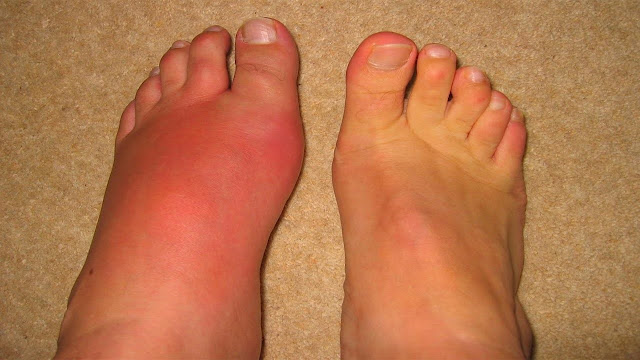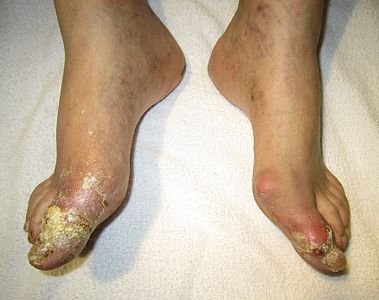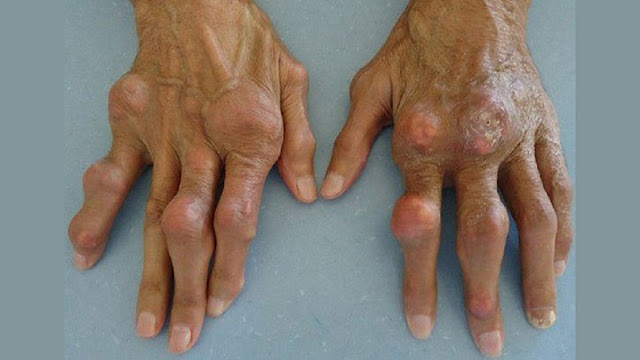What is gout and what are its causes and methods of treatment | healthy care
What is gout and what are its causes and methods of treatment
"What is gout?"
A person may wake up in the middle of the night with a feeling that the thumb of the foot is as if it were burning with fire. They are hot, swollen so intense and sensitive that the sheet's weight has become unbearable. These problems may indicate a serious attack of gout or gouty arthritis - a type of arthritis characterized by sudden, severe bouts of pain, redness, and sensitivity in the joints. Gout is a complex disorder that may afflict anyone, but men are more likely than women to develop gout, while women are particularly susceptible to gout, after menopause. Fortunately, gout can be treated, and there are ways to reduce the risk of recurring gout.
Symptoms of gout
In general, symptoms of gout appear severe and sudden, without prior warnings, at close hours at night. It includes:
Acute joint pain: gout generally and mainly affects the large joint in the thumb of the foot, but it may also affect other joints in the foot, ankles, knees, hands, and pelvis.
If gout is not treated, the pain may persist for five to ten days and then disappear. Symptoms of gout reduce and discomfort gradually, during a period ranging between one to two weeks until the joint returns, at the end of this process to its normal form and pain stops, and symptoms of gout completely disappear. Inflammation and redness: the affected joint (or the affected joints) swells, reddens And it becomes very sensitive.
Causes and risk factors for gout
Gout when accumulating crystals of Uric acid around the joints, causing inflammation and acute pain - (gout attack). Uric acid crystals are formed in people with a high level of uric acid in their blood.
The body produces uric acid as part of the purine analysis process, a substance that is found naturally in the body and in certain types of food, such as internal organs, anchovy, herring, and asparagus
(Asparagus). ) And mushrooms. Uric acid is generally dissolved in the blood and transmitted through the kidneys to urine. However, there are cases in which the body may produce very large amounts of
uric acid or the kidneys may produce very small amounts of uric acid. In these cases, uric acid accumulates in the form of sharp (serrated) crystals that resemble a needle inside the joint, or in the
tissues surrounding it, as a result of which pain, inflammation, and swelling are formed.
Hence, people whose uric acid level (concentration) is elevated are more likely to develop gout.
Several factors may cause a high level of uric acid in the body.
Factors that lead to high uric acid in the body
| --- | Medical problems: hypertension (Hypertension), diabetes (Diabetes), Hypercholesterolemia, Hyperlipidemia and arterial narrowing (calcification/atherosclerosis - Atherosclerosis)
| --- | Certain medications: Taking certain thiazide medications - which are common to treat high blood pressure - and aspirin in small doses, may lead to elevated uric acid. The same applies to take "anti-rejection drugs", which are taken by people who have undergone organ transplants





















No comments